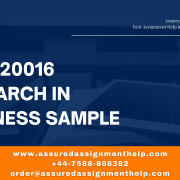Facts
The case involved the determination of whether a lender can enforce a transaction against a wife. In this case, the issues involved the lender offering a mortgage. At the time, Jean Balharry Garcia and her at that point spouse, Fabio Garcia, executed a mortgage over their together claimed wedding home for National Australia Bank. In the vicinity of 1979 and 1987, Jean Balharry Garcia likewise marked a few certifications. These records were marked to secure an advance that was made to Fabio Garcia for use in his organization, Citizens Gold Bullion Exchange Pty Limited. The couple isolated in 1988, and in the next year, Fabio Garcia’s organization twisted up. In 1990, Jean Balharry Garcia started procedures in the Supreme Court of New South Wales looking for presentations that the different reports were of no power or impact, and void. The trial judge, Young J, connected the ruling in Yerkey v Jones (1939), and conceded a revelation that none of them ensures which the appealing party had given bound her. She contended that undue influence was at the centre of it all as the husband had told her that nothing was to go wrong. She was thus moving to court to have the paper declared null and void.
When the matter went to appeal in the NSW court of Appeal, the court opined that Yerkey had been overruled by CBA v Amadio (1983). However Garcia was given the right to appeal to the High Court of Australia.
Issues
The issues under determination in this case were whether she understood the terms of the mortgage or what she was entering into. It was also an issue as to whether the case law established by Yerkey case (supra) was applicable in absolving the spouse liability that she had assumed.
Whether the status of the conclusion of Dixon J in Yerkey, should any manage which Yerkey may have expressed in 1939 now be viewed as old and subsumed in the standards communicated in later choices, for example, Amadio? Should this be finished having respect to changes in the public arena influencing hitched ladies, their legitimate status, the extension of the accessibility of budgetary credit to them and the attractive quality of staying away from dependence upon oppressive criteria for the arrangement of fair alleviation and the advancement of impartial regulation? The other was whether the fair standard communicated by Dixon J in Yerkey is uncovered as his individual conclusion, is overruled as out of date or now regarded as consumed in the more extensive principles of value, does the work of such regulation in Amadio adequately meet the specific issue of sureties who are sincerely helpless or reliant on the account holder? Or, on the other hand is a more extensive articulation of evenhanded standard required than that communicated in Amadio? Specifically, should this Court take after the choice of the House of Lords in Barclays Bank Plc v O’Brien (1993) or some altered form of the standards there expressed? (The Barclays Bank Plc v O’Brien 1983).
Arguments by the parties
The parties had different arguments in this case. While Ms. Garcia argued that she had been misrepresented with facts by her estranged husband, the bank argued that she knew exactly what she was entering into. Ms Garcia wanted that the documents be declared void for the reason that the marriage had been annulled by the court and that she had been misrepresented with facts in order to sign the mortgage. Her husband had also tricked her that nothing was to go wrong of which it turned out that there was a divorce and the company she was guaranteeing went down. She was also naïve in that she did not know much about the transaction she was entering into making it unconscionable. She also had not got any advantage from the transaction hence making her innocent. In the first instance the Yerkey case was contended as to whether it applied in the current circumstance.
The bank on the other hand argued that there was no undue influence in the transaction as she had entered into the transaction knowingly. It was established that she was a philanthropist hence a professional and hence could not rely on the assertion that she did not know what she was doing while entering into the agreement. The bank was thus against the under influence aspect that was relied on and the argument on Yerkey was submitted that it had been overturned by Amadio (supra).
Judgment
The trial judge found that the appealing party was not “straightforwardly required” in Citizens Gold. Furthermore, he made this finding despite that the surety was appeared in records held by the Australian Securities Commission to be both an executive of, and an investor in, the organization. The records of Citizens Gold held at the Australian Securities Commission exhibited, be that as it may, a confounding picture of developments in shareholdings throughout the years: so befuddling that the trial judge said that it could be seen from the records that the correct valuable holding in the different organizations [including Citizens Gold] is very dark. In spite of the fact that the trial judge found that now and again some advantage streamed to the family from the organizations, he found that they were organizations that were in the total control of the litigant’s significant other. Taken all in all, those discoveries exhibit that the litigant in actuality acquired no genuine advantage from her entering the exchange; she was a volunteer. The way that she was a chief of the organization is nothing to the point if, as the trial judge’s discoveries appear, she had no budgetary enthusiasm for the fortunes of the organization.
The lead question is whether the New South Wales Court of Appeal blundered in holding that the essential judge was mixed up in applying to the actualities as found the standard expressed by Dixon J in Yerkey v Jones. The Court of Appeal held that, when Yerkey was legitimately broke down, it uncovered that Dixon J’s rule had not been received by this Court, in spite of the fact that it is ordinarily ascribed to it. The standard in this manner added up to a supposition of Dixon J alone. Having so closed, the Court of Appeal verified that the later choice of this Court in Commercial Bank of Australia Ltd v Amadio. Appropriately depicted the locale of value to alleviate a surety against unconscionable dealings Once the standards of Amadio were connected to the actualities of the case there ought to be no space for turn to the unique position in Yerkey v Jones.
over sixty years after Yerkey, a extra part of the high court in Garcia, maintained the top notch value irrespective of its reputedly antiquated reasons. The case concerned a partner who ensured the obligations of her better 1/2 without absolutely knowledge that it may result in the lack of the wedding domestic. whilst it turned into held that there has been no actual undue impact, glaringly the spouse implemented passionate weight at the wife, confirm in that he ‘reliably added up what a trick she was in commercial enterprise matters even though he become a consultant’. In show it became submitted and alongside these lines discovered that she had ensured the responsibilities retaining in thoughts the end purpose to protect the marriage for the eventual destiny of her and their two children.
Dixon J in Yerkey held that the achievement of the splendid cost should rely on the situations, as the understanding and commercial enterprise comprehension of the lady’. The trial decides noticed that the partner ‘delivered herself as a skilled and good enough expert’. In mild of her “polished technique” and having already settled a physiotherapy practice, one would assume that she would not be certified for the superb cost. However, despite Dixon J’s statement, the lion’s proportion located to assist her. Therefore a partner’s know-how and moreover business knowledge is not a floor for invalidating the remarkable cost.
The essential judge had held that the standards in Amadio did not offer ascent to help. A cross-request testing that finding was expelled. No other ground for alleviation was maintained. Likewise, the Court of Appeal denied the case for impartial and other help. It was from that result, however especially to challenge the view taken of the expert and use of the gathered guideline in Yerkey, that extraordinary leave was conceded to allow an interest to this Court.
Mrs Garcia comprehended what a certification was, however not that this assurance was secured by a formerly marked ‘all cash contract'”. Undue Influence was established. Court of advance at that point Overturned choice of the Trial Judge. Through a greater part’s offer of five to one, the High Court (Gaudron, McHugh, Gummow, Hayne and Callinan JJ) declined to grasp the approach taken by Lord Browne-Wilkinson in Barclays Bank plc v O’Brien [1994] and rather, held that the lead in Yerkey v Jones (Supra) still associated in Australia.[8] Kirby J in his differing judgment fought that the In any case, the High Court was steady in annoying the decision of the Court of Appeal for reestablishing the trial judge’s solicitations. The High Court furthermore held that the law of unconscionability as developed in Commercial Bank of Australia Ltd v Amadio (1983), did not cover the keep running in Yerkey v Jones, and somewhat, both of these cases were considered as unmistakable traditions.
In detail thus, Their specific Honors found that there is no positive finding of genuine undue impact notwithstanding certainty spouse had constrained wife and she approved on the grounds that he over and again exhorted her she was a trick and he a specialist, and endeavor to spare their marriage. Every one of their Honors additionally watched that Australian culture, and particularly the part of ladies in that society, has advanced in the last about six decades is undoubted. Albeit a few things are the same, there exist still a noteworthy number of ladies in Australia seeing someone which can be, set apart by inconsistencies of temperate and other power between the parties at page 404.
They further noted that Yerkey depended on trust and certainty, in the customary feeling of on the relationships between accomplices. The marriage is without a doubt that one, regularly the lady, could leave numerous, maybe all, business judgments to the next mate. In that sort of relationship, business choices might be made with little counsel between the parties and with just the most truncated depiction of their impact. Now and then, with not the scarcest trace of lacking honesty, the defense of the specific exchange given by individual to the next will be flawed and deficient, if not just off-base.
it was attested that Relief high is no real undue effect depends after the surety being a volunteer and mixed up about the imply and impact of the exchange, and the money related foundation being taken up have cherished that because of trust and certainty amongst surety and indebted person the surety may well get from the account holder no adequate defense of the exchange’s imply and impact. To force the exchange against a mixed up volunteer when the loan boss, the party that tries to take the fortunate thing about the exchange, hasn’t itself clarified the arrangement, and does not realize that an outsider has done as such, would be unconscionable. On that premise the main inquiry of understand that emerges is whether the loan boss knew at the season of the taking of the certification that the surety was then hitched to the money related institution.
The bank knew that Mrs Garcia was hitched to the lender and, in light of the fact that they made no move to portray the arrangement with her and perceived of no free exhortation to her in regards to it, Garcia was qualified for do well. Justice Kirby concurred that the interest ought to be permitted, in spite of taking note of worries about whether value must give help in an occasion, for example, this – specifically: The spouse was not misdirected nor forced by the husband into marking the assurance Nor was her will overborne in a specialized sense. On the off chance that the budgetary exchanges [involving the business] experienced demonstrated beneficial, obviously, if the individual human connections of your companion and spouse had enhanced, it barely appears to be likely that the wife could have renounced the efficient advantages as energetically as this lady has now tried to get away from the sparing weights.
What’s more it was particularly discovered that she would have appeared to the loan specialist as ‘a wise eloquent young lady with an expert position calling at the standard bank, seeming, by all accounts, to be under your own particular accord marking an assurance in regard of a thought which she was a chief of the organization concerned, and there was close to nothing or nothing to give the standard bank even doubt”. The better half realized what a confirmation was. She realized that the report she was executing was clearly an assurance. In the event that the buy at the Bank required just a couple of minutes, this was, in any event basically, in light of the fact that the spouse posed no inquiries. She looked for no data or counsel. Your lady gave the presence of understanding what she was doing. She had beforehand masterminded up her own proficient business as a physiotherapist
Conclusion
You honors thus concluded that Misrepresentation by way of Mr Garcia to his spouse being hooked up, together with constructive note of the capacity vulnerability of the spouse, the bank is unable to put in force the surety obligation towards her due to the fact it is constant with positive note of her proper to set aside the transaction having regard to its failure to take reasonable steps to fulfill itself that she entered the responsibility freely and with knowledge of the applicable statistics. It was far right here that the principal weak point in the bank’s case was obvious. Because the first of all judge discovered, in this situation the bank’s normal approaches had been no longer followed. Mrs Garcia changed into given no advice or explanation of the papers which she had been signing still less become she was not informed to search for impartial advice or that such proof would be a pre-condition to the bank’s popularity of her assure.
The fact that she changed into a director of the organization and that she provided as an “intelligent articulate lady” in a expert function is in reality relevant. but it isn’t ultimately determinative. To the expertise of the financial institution, the home wherein she lived was being positioned in jeopardy. The financial institution did not insist that she turned into made fully privy to that threat. In such instances, there being no extraordinary reasons to keep otherwise, the financial institution turned into unable to put in force the surety duty. Although the case is not clean reduce and a number of the evidence supported the bank’s arguments, it was concluded that the primary decide turned into proper to preserve as he did. Banks and other credit providers can defend themselves from this result was maximum already achieve this.
In this, the High Court was of the view that the original trial court position was the correct one and thus overturned the decision of the court of appeal of NSW. It settled on the fact that the Yerkey position was still the position in law. It thus refuted that it had been overturned in Amadio. It flowed from a broader doctrine by means of which fairness protects the vulnerable parties in a courting and guarantees that during proper instances they have complete statistics and, in which essential, unbiased recommendation before they volunteer to put at danger the foremost asset of their dating for the number one advantage of those to whose stress they will be mainly susceptible.
Rule established
It was established by this case that the Yerkely case is still active case law just as the Amadio case. It was also reinforced that Yerkely is the only case law in Australia adding to this that could be relied on in Equity in order to absolve a spouse who had been coerced to enter into an agreement. Thus, if a married woman enters into an agreement without independent financial advice, and if this is caused by their husband she is not to be held liable. Financial institutions are to ensure that this advice is sought before a guarantee can be obtained from the spouse (Chew 2007).
Bibliography
- Books, journals
Cases
Barclays Bank plc v O’Brien [1993] UKHL 6
Commercial Bank of Australia Ltd v Amadio [1983] HCA 14
Garcia v National Australia Bank (1998) 194 CLR 395; [1998] HCA 48
Yerkey v Jones [1939] HCA 3,










